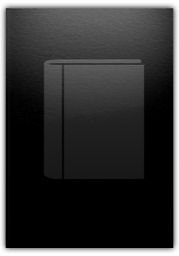
It's time to rediscover the wonderful books we all cherish. 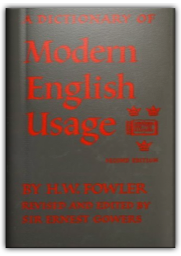
A guide to precise phrases, grammar, and pronunciation can be key; it can even be admired. But beloved? Yet from its first appearance in 1926, Fowler's was just that. Henry Watson Fowler initially aimed his Dictionary of Modern English Usage, as he wrote to his publishers in 1911, at "the half-educated Englishman of literary proclivities who wants to know Can I say so-&-so?" He was of course obsessed with, in Swift's phrase, "proper words in their proper places." But having been a schoolmaster, Fowler knew that liberal doses of style, wit, and caprice would keep his manual off the shelf and in writers' hands. He also felt that description must accompany prescription, and that advocating pedantic "superstitions" and "fetishes" would be to no one's advantage. Adepts will have their favorite inconsequential entries—from burgle to brood, truffle to turgid. Would that we could quote them all, but we can't resist a couple. Here Fowler lays into dedicated:He is that rara avis a dedicated boxer. The sporting correspondent who wrote this evidently does not see why the literary critics should have a monopoly of this favourite word of theirs, though he does not seem to think that it will be greatly needed in his branch of the business. Needless to say, later on rara avis is also smacked upside the head! And practically fares no better: "It is unfortunate that practically should have escaped from its true meaning into something like its opposite," Fowler begins. But our linguistic hero also knew full well when to put a crimp on comedy. Some phrases and proper uses, it's clear, would always be worth fighting for, and the guide thus ranges from brief definitions to involved articles. Archaisms, for instance, he considered safe only in the hands of the experienced, and meaningless words, especially those used by the young, "are perhaps more suitable for the psychologist than for the philologist." Well, youth might respond, "Whatever!"—though only after examining the keen differences between that phrase and what ever. (One can only imagine what Fowler would have made of our late-20th-century abuses of like.) This is where Robert Burchfield's 1996 third edition comes in. Yes, Fowler lost the fight for one r in guerrilla and didn't fare too well when it came to quashing such vogue words as smear and seminal. But he knew—and makes us ever aware—that language is a living, breathing (and occasionally suffocating) thing, and we hope that he would have welcomed any and all revisions. Fowlerphiles will want to keep their first (if they're very lucky) or second editions at hand, but should look to Burchfield for new entries on such phrases as gay, iron curtain, and inchoate—not to mention girl. —Kerry Fried 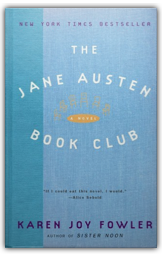
The Extraordinary New York Times Bestseller 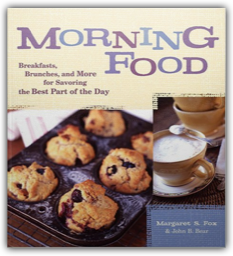
Morning Food - Breakfasts, Brunches, and More for Savoring the Best Part of the Day, Revised By Margaret Fox, John Bear"For more than 20 years, Margaret Fox served up some of California's tastiest breakfasts and brunches at her landmark restaurant Cafe Be 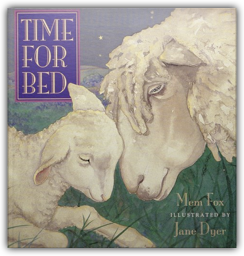
Darkness is falling everywhere and little ones are getting sleepy, feeling cozy, and being tucked in. ItÂ's time for a wide yawn, a big hug, and a snuggle under the covers—sleep tight! “Working beautifully with the soothingly repetitive text, each painting conveys a warm feeling of safety and affection.”—School Library Journal 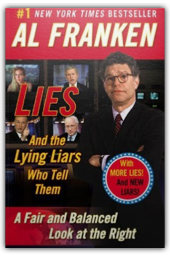
Having previously dissected the factual inaccuracies of a single bellicose talk show host in Rush Limbaugh Is a Big Fat Idiot, Al Franken takes his fight to a larger foe: President George W. Bush, the Bush Administration, Ann Coulter, Bill OReilly, and scores of other conservatives whom, he says, are playing loose with the facts. It's a lot of ground to cover, as evidenced by the 43 chapters in Lies and the Lying Liars Who Tell Them, but the results are often entertaining and insightful. Franken occupies a unique place in the modern political dialogue as perhaps the media's only comedy writer and performer who is also a Harvard fellow as well as a liberal political commentator. This unique and vaguely lonely position lends a charming quixotic quality to adventures such as a tense encounter with the Fox News staff at the National Press Club, a challenge to fisticuffs with National Review Editor Rich Lowry, and an oddly sweet admissions visit to ultra-conservative Bob Jones University (with a young research assistant posing as his son when Franken's real-life son refuses to participate in the charade). Less useful are comic book dramatizations of "Supply Side Jesus" and a fictitious Vietnam War story featuring the numerous righties who, Franken intimates, improperly avoided service. And Franken's criticisms of conservative talk show hosts Sean Hannity, OReilly, and columnist Coulter, while admirable in their attention to detail, fail to shed much new light on people who have built careers on broad arguments and relentless self-aggrandizement. But Franken is at his best, and most compellingly readable, when he backs off the wackiness and the personal grudges and writes about more personal matters such as the political circus surrounding the memorial service of the late Senator Paul Wellstone. But even on these more serious topics, Franken's wit is still present and, in fact, grows sharper. In a time when much political discourse is composed of rage and shouting, it's refreshing that Al Franken is able to shout in a witty manner. —John Moe |
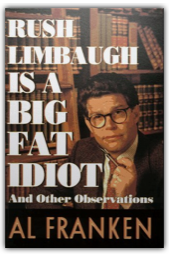
Rush Limbaugh claims his talent is on loan. With this book, Franken demonstrates that he owns. The frankly Democratic author's shtick reminds us how much of a free ride conservatives have gotten in the mainstream media. For instance, he really drives home the weirdness of the conservatives' preachiness about "family values" in light of Newt Gingrich's and Bob Dole's first marriages, and Rush Limbaugh's first, second and third marriages. And he has great fun with Rush's and Newt's miraculous draft deferments in a chapter where he imagines all of the great conservative "chicken-hawks" out on a Vietnam war patrol under the leadership of Ollie North. 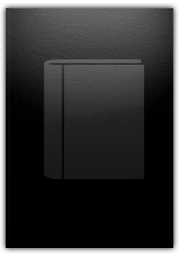
This illustrated cult classic is a trip to Mexico in and of itself, complete with the flavor of the country, and its sights, sounds, and people. In addition to the basic information necessary, Carl Franz and Lorena Havens have packed the book with amusing stories and friendly guidance. The For More Information chapter is arguably the largest and most complete guide available on Mexico internet resources, book and map reviews, and other info sources for travelers. Hundreds of thousands of people who have read The People's Guide to Mexico over the past 30 years say they wouldn't travel without it. And there are lots of people who read it for sheer pleasure — with no intention of traveling at all! "The best guidebook to adventure in the whole world." — Harper's "If you're heading South, this book could be more valuable than a dictionary or Pepto Bismol." — Travel Weekly "The People's Guide to Mexico has achieved mythical status." — Outside 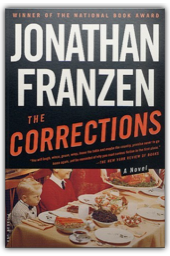
Jonathan Franzen's exhilarating novel The Corrections tells a spellbinding story with sexy comic brio, and evokes a quirky family akin to Anne Tyler's, only bitter. Franzen's great at describing Christmas homecomings gone awry, cruise-ship follies, self-deluded academics, breast-obsessed screenwriters, stodgy old farts and edgy Tribeca bohemians equally at sea in their lives, and the mad, bad, dangerous worlds of the Internet boom and the fissioning post-Soviet East. 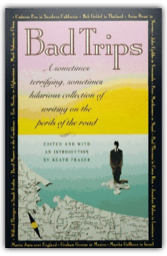
Half the pleasure of reading the stories collected together in Bad Trips, an anthology of travel writing, is imagining the authors so wonderfully out of place! Picture Indian author Anita Desai in wintry Norway or proper British writer Jonathan Raban in a seamy Louisiana pool hall. Italian semiotician Umberto Eco in Southern California? David Mamet in the Caribbean? Before you've even started, you know it's going to be good. The stories range from laugh-out-loud funny (Martin Amis on the start of a harrowing flight from London: "When it comes to flying, I am a nervous passenger but a confident drinker and Valium-swallower. And although I wasn't exactly goosing the stewardesses or singing 'Viva Espana'... I was certainly in holiday mood....") to the poignant. (James Trevor describing his worst journey, the trip he took back to an Irish boarding school when he was 12: "By the time we reached Bunclody the odour of long-boiled cabbage that hung about the school's kitchen and dining room was beginning to mingle with the bus's exhaust fumes. By Kildavin, the noise of the play yard echoed; by Tullow, Monsieur Bertain was striking the blackboard in a fury. 'Tell us why, if you would,' the sarcastic science master invited in Rathvilly. 'Tell us why you lack intelligence.'") 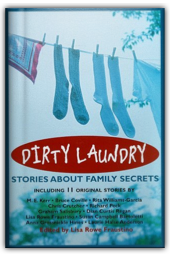
What family doesn't have secrets? The Dirty Laundry collection, edited by Lisa Rowe Fraustino (author of Ash), explores this universal fact of life via 11 original short stories penned by acclaimed young adult writers. Graham Salisbury shines with "Something Like ... Love," his story about a Hawaiian boy who befriends a Caribbean man of mystery and in the process learns a little about what matters in life. In "Popeye the Sailor," Chris Crutcher uses the cycle of child abuse to reveal that secrets tend to rear their hideous heads—no matter how firmly they are pushed aside. M.E. Kerr artfully explores the haunting of a teenage girl by her dead adoptive brother in "I Will Not Think of Maine," and in "Passport," Laurie Halse Anderson takes an amusing look at a young person torn between divorced parents and struggling to create a reality all his own. Diverse as they are, the stories share the quality of compelling, solid writing, as well as the message that no matter how normal or perfect a family appears, secrets are sure to lurk just beneath the surface. —Brangien Davis 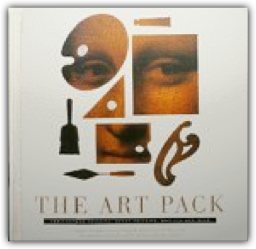
Filled with pop-ups, pullouts, and mobiles, The Art Pack is a completely new way to experience artists' use of color, line, composition, perspective, and optics, as well as a lavishly illustrated introduction to the history of Western art. 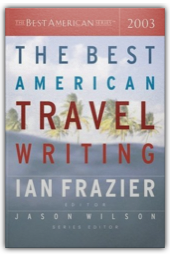
Since its inception in 1915, the Best American series has become the premier annual showcase for the country's finest short fiction and nonfiction. For each volume, a series editor reads pieces from hundred of periodicals, then selects between fifty and a hundred outstanding works. That selection is pared down to the twenty or so very best pieces by a guest editor who is widely recognized as a leading writer in his or her field. This unique system has helped make the Best American series the most respected — and most popular — of its kind. |

My Library
Collection Total:
1390 Items
1390 Items
Last Updated:
Mar 22, 2009
Mar 22, 2009

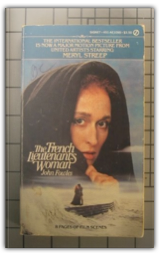
 Made with Delicious Library
Made with Delicious Library